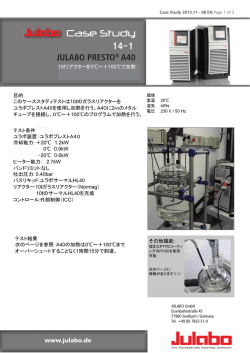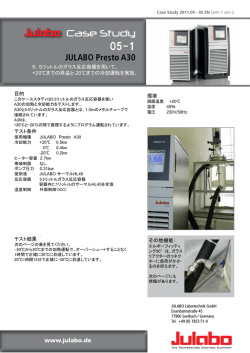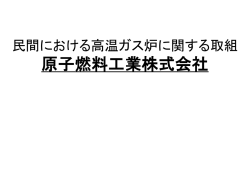
(梶川委員提出資料)(PDF形式:1634KB)
総合資源エネルギー調査会 自主的安全性向上・技術・人材WG 第4回会合 資料3 安全技術に関する研究動向分析 東京工業大学大学院 イノベーションマネジメント研究科 梶川裕矢 技術ロードマップとは? “consensus articulation of scientifically informed vision of attractive technology futures” (Branscomb, 1998) 経済、社会、環境への影響 実現可能性、実装可能性、収益性 実施 ビジョン 意思決定 研究開発課題 要素技術 製品・サービス システム 市場導入 戦略評価 戦略立案 設計 分析 観察 過去 現在 事業戦略 経営資源 政策・施策 エコシステム ミッション 研究開発動向 技術動向 エネルギー需要 エネルギー供給 社会変化 国際情勢 将来 未来 時間 1 科学技術をめぐる本質的な課題 •知識の爆発 Volume of Knowledge 実質合理性、手続き合理性双方における困難性 •知識の細分化・専門化 We are drowning in the information sea. Prerequisite to catch up with the pace of development Industry Revolution Renaissance Before modern history Time Time •課題の複雑化 Boundary setting and framing of focal issues •公共性と意思決定 How to make plan and decision in salient, credible, and legitimate manners 2 計量書誌分析を用いた安全技術に関する研究動向分析 データベース: Science Citation Index-Expanded, Social Science Citation Index (Thomson Reuters) データセット: 検索キーワード I: Nuclear Reactor Safety (Query = (Nuclear or Reactor) and Safety) II: Nuclear Power Plant (Query = Nuclear and (Power* or Reactor* or Plant*)) III: LWR (Query="Light Water Reactor*” or "Light Water Nuclear Reactor*“ or LWR) 1,600 50% 6,000 40% 5,000 1,400 1,200 1,000 30% 800 20% 600 50% 40% 10% 200 0 1990 1995 2000 2005 2010 0% 2015 10,336 papers 4,608 papers 350 50% 300 40% 250 4,000 30% Total 3,000 Japan (%) 20% 2,000 400 17,882 papers 30% 200 Total 150 Japan (%) Total 20% Japan (%) 100 10% 1,000 0 1990 1995 2000 2005 2010 0% 2015 10% 50 0 1990 1995 2000 2005 2010 0% 2015 引用ネットワーク分析 3 I Academic Landscape of Nuclear Reactor Safety (4,592/17,882 papers) #12 Tritium 99, 2003.8 #3 Research Reactor 388, 2007.7 #5 Fusion 285, 1999.3 #8 CFD 196, 2008.1 #11 Severe accident #9 Safety and Related Issues 118, 2008.0 #2 Human & Organizational Factors 137, 1998.7 432, 2005.4 #1 Reactor Design 446, 2006.2 #7 Database 253, 2006.1 論文数上位3クラスタを再帰的 にクラスタリングした結果を別 添資料1に示す。 #4 Lead-cooled Fast Reactor 296, 2005.2 #10 Sodium-cooled #6 Chemical Fast Reactor Reactors 126, 2009.0 253, 2006.1 4 II Academic Landscape of Nuclear Power, Reactor, Plant (10,336/37,608 papers) #5 CFD and Simulation 354, 2007.3 #11 Heat supply and pipe #7 Seismic and other external events 298, 2004.1 #3 Radioactive release and health impact 1153, 2007.4 212, 1993.5 #9 Automation 276, 1977.2 #12 Thermal fatigue 185, 2006.7 #2 Fault detection and diagnosis 1347, 2003.8 #10 Irradiation and corrosion 270, 2004.1 #8 radiocarbon monitoring 288, 2004.5 #1 Social, political economy, and technological prospects #4 Neutrino oscillation #6 Neutronic-thermohydraulic instabilities and Uncertainty assessment 351, 2006.9 1568, 2005.8 368 2003.3 5 III Academic Landscape of Light Water Reactor (4,592/4,608 papers) #2 once-through cycle and plutonium #6 Simulation 71, 2005.0 153, 2003.2 #3 High performance flow and core design 148, 2007.7 #5 Radiation-induced material changes 74, 2003.9 #4 burn-up rim structure 102 2002.6 #1 Severe accident 156 1999.2 6 技術ロードマップとは? “consensus articulation of scientifically informed vision of attractive technology futures” (Branscomb, 1998) 経済、社会、環境への影響 実現可能性、実装可能性、収益性 実施 ビジョン 意思決定 研究開発課題 要素技術 製品・サービス システム 市場導入 戦略評価 戦略立案 設計 分析 観察 過去 現在 事業戦略 経営資源 政策・施策 エコシステム ミッション 研究開発動向 技術動向 エネルギー需要 エネルギー供給 社会変化 国際情勢 将来 未来 時間 7 分析結果の要点と含意 • 技術ロードマップの定義としては、Lewis Branscombによる“A consensus articulation of a scientifically informed vision of attractive technology futures”が一般的に用いられている。 すなわち、ロードマップの策定にあたっては、vision(将来のあるべき姿)をscientifically informed な形で示す必要がある。今回の分析はそのための一助と言う位置付け。また、 現在の原子力分野の技術者や研究者だけでなく、将来を担う学生や、他分野の研究者 にとっても魅力的な研究開発課題を提示することで、原子力分野に人材を惹きつけられ るロードマップとすべきである。 • 原子力発電の安全に関わる研究開発課題はもちろん炉の設計(クラスタ#1)に限らない。 人・組織の問題(#2)、研究炉を用いた材料評価(#3)、高速炉(#4, #10)、CFD(#8)やデータ ベース開発(#7)、シビアアクシデント対策(#11)など多様である。論文数を国別にみると、 研究炉(#3)において日本の論文数が世界で最も多く(論文数シェア24.6%)、学術知識の 蓄積に国際的に貢献している。PSAや最適化アルゴリズム、人や組織の問題等を含むク ラスタ#2における日本の論文数シェアは1.5%(19位)と少なく、今後は情報工学や社会科 学分野も含めて強化する必要がある。 • 大学院で原子力を学ぶ学生が100%原子力産業に従事するわけではないこと、平均出 版年が若い近年研究が活発な分野では、原子炉に関する専門的知識以外に、原子核 物理、材料科学、流体反応工学、情報工学、経営学、政策学など、多様な専門性が必 要とされており、研究開発においても、教育においても、人材の流動性を促進する方策 8 に留意する必要がある。 論文数上位3クラスタの詳細 # 1-1 1-2 1-3 1-4 1-5 1-6 1-7 1-8 1-9 Name reliability evaluation small modular reactors, IRIS passive safety systems, AP1000, LOCA power level control, HTR-PM reactor safety margin and code scaling high temperature reacto integral reactor accumulated reactor midloop operation, shutdown operation Year_ave # nodes # links link/node 2008.5 73 283 3.88 2008.7 73 114 1.56 2006.2 72 129 1.79 2003.3 71 133 1.87 2002.7 69 158 2.29 2008.6 36 44 1.22 2007.4 30 52 1.73 2007.4 16 18 1.13 2001.3 6 6 1.00 2-1 2-2 2-3 2-4 2-5 2-6 2-7 2-8 2-9 2-10 2-11 genetic algorithm for surveillance and maintaiance organizational culture and factors task complexity and human factors probabilistic safety assessment and fault tolerant technique human reliability analysis and diagnosis failures management and team performance risk importance measures aging of concrete structure off-site power supply nuclear education genetic algorithm and redundancy allocation 2005.6 2004.7 2006.1 2006.3 2003.9 2007.7 2004.5 2002.9 2007.8 2004 2008.5 91 83 58 43 39 38 32 23 13 4 4 350 141 148 50 51 53 36 29 12 3 3 3.85 1.70 2.55 1.16 1.31 1.39 1.13 1.26 0.92 0.75 0.75 3-1 3-2 3-3 3-4 3-5 3-6 3-7 3-8 3-9 3-10 3-11 3-12 3-13 3-14 3-15 3-16 research reactor simulation of fuel-coolant interactions in disruptive accident supercritical water-cooled thermal reactor core design and fuel management optimization sodium-cooled fast reactor multi-physics modeling reactivity insertion molten-salt reactor uncertainty and sensitivity analysis for coupled code calculations debris and solid particle bed flow instability small fast sodium-cooled reactor supercritical water, CANDU Nigeria Research Reactor post-accident heat removal thermal-hydraulic phenomena 2007.5 2007.2 2007.9 2009.6 2008.4 2009.5 2007.6 2004.1 2006.6 2010 2005.8 2002.6 2006.6 2009 2009.7 2008.8 79 72 54 35 34 22 21 12 9 9 9 8 8 6 6 4 151 170 142 45 56 27 25 14 10 9 8 17 8 7 5 4 1.91 2.36 2.63 1.29 1.65 1.23 1.19 1.17 1.11 1.00 0.89 2.13 1.00 1.17 0.83 1.00 link/nodeは論文1本当たりの被引用数であり、当該研究領域の学術的な重要度または注目度を表している と考えられる。
© Copyright 2024


